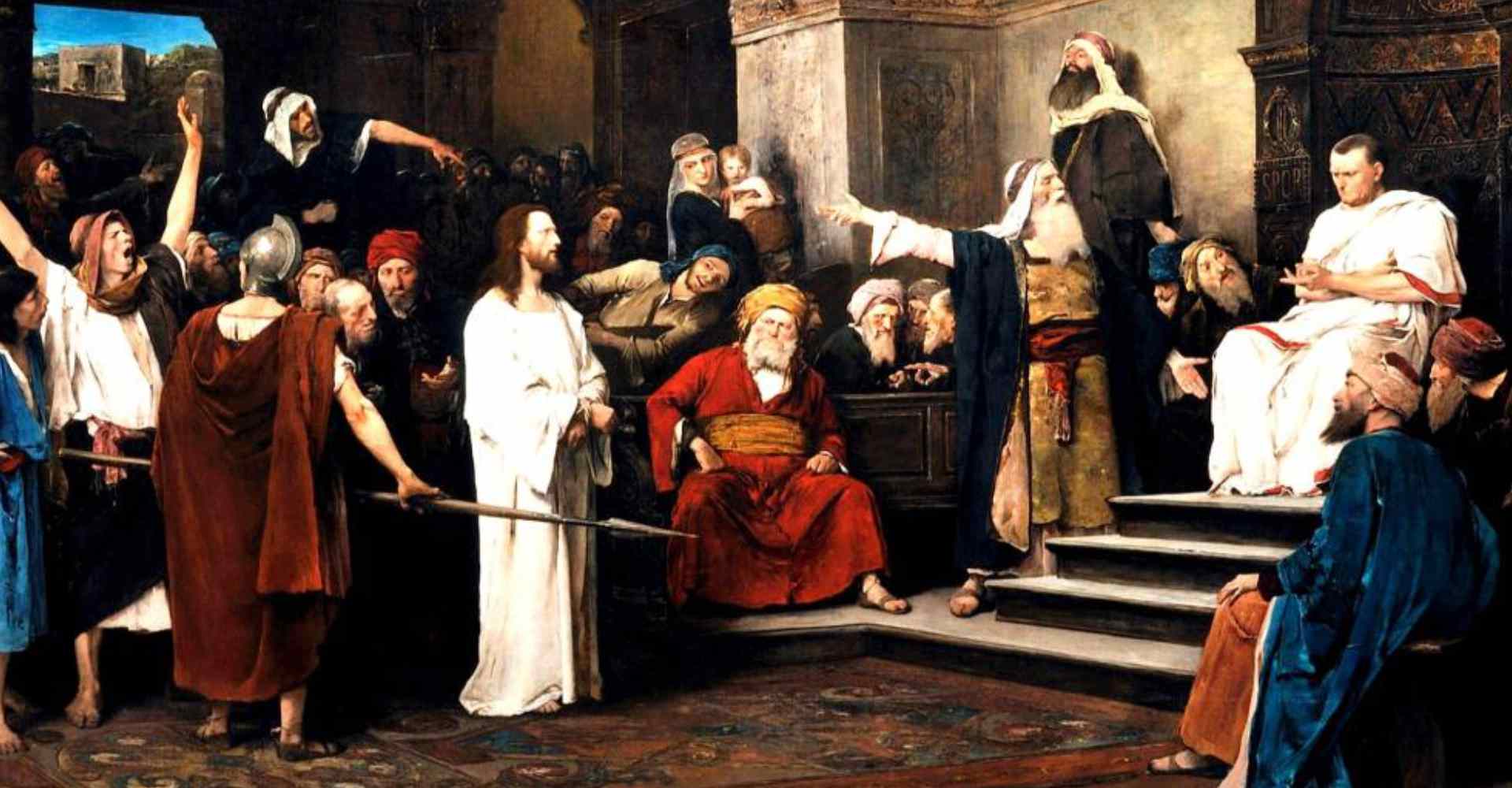The church today is under the scrutiny of the political leaders. Jesus too underwent two trials following his arrest: one before the Sanhedrin on Thursday night, and second before the Roman governor, Pontius Pilate on Friday morning.
The Cronyism and Justice
The Sanhedrin, the highest Jewish council, was given complete freedom by the Roman government over religious matters.
But it had only little freedom in political affairs. The Sanhedrin consisted of seventy elders and teachers of the law (Sadducees and Pharisees) and was normally presided by the high priest.
Caiaphas was the Jewish high priest at the time of Jesus’ crucifixion, exercising an active role in Jesus’ trial (Matt. 26:3, 57, 62). Interestingly, another high priest, Annas, seems to have been influential at the same time as Caiaphas
(Luke 3:2). You may wonder why Caiaphas and Annas were active in the trial of Jesus since we know that the office of the high priest was usually occupied by only one person. From history we know that, Annas was appointed high priest by the Romans in AD 6 and deposed in AD 15. Caiaphas was high priest at a later time, being appointed in AD 18 until AD 36. Josephus, the historian tells us that Annas had five sons, who were also appointed as high priests at various times. John’s Gospel informs us that Annas was a relative (father-in-law) of Caiaphas (John 18:13). It is possible that Annas held a position of leadership within the high priestly family, whereas his son-in-law, Caiaphas served as the appointed high priest.
Jesus was brought before the Sanhedrin on false charges of plotting to overthrow the Temple (Matt. 26:61; Mark 14:58). Jesus remained silent until pressed by the high priest to answer whether he was the Son of God or not. Jesus affirmed the question (Mark 14:62, while in Matthew 26:64 and Luke 22:70 Jesus’ response sounds ambiguous but is not a denial of the question), and that is understood as blasphemy deserving death. Crony culture within the religious order did not give its ears to the faithful confession of Jesus.
Politics and the Maneuvering Of Justice
On the morning of the next day, Friday, Jesus faced the second of two trials. This hearing was before Pontius Pilate who was the governor of Judea from AD 26 to 36. Interestingly, the charges before Pilate changed from Jewish legal allegations to political allegations, especially that Jesus claimed to be “king of Jews” (Mark 15:2). Jesus remained silent during the interrogation, responding only briefly and vaguely to Pilate’s questions (Matt. 27:14).
Pilate deserves no sympathy for his dilemma in sentencing Jesus. As a governor, he was authorised with unlimited power by Rome. But his weakness and indecisiveness should not be mistaken for virtue.
As a governor, Pilate was responsible for the administration of the province of Judea, including judicial matters. Pilate had the power to “execute”. He was also responsible for collecting taxes and tribute, disbursing funds to the provinces, and sending revenues to Rome. Josephus recounts Pilate’s effective and ruthless use of that power on a number of occasions, like erecting the images in honour of the reigning emperor, Tiberius in Jerusalem and using Temple funds to construct an aqueduct.
By choosing the path of least resistance in Jesus’ case, Pilate was responsible for the evil he did, by releasing a convicted murderer and the condemning of the righteous Son of God to death.
Nepotism, cronyism, maneuvering, perversion of justice, sycophancy were all parts of political systems then, as much as they are now. Truth is often made to stand in witness box against the manipulation of such forces by those that seem powerful. The Church in India today stands where her Lord did centuries back – forced to prove her innocence, patriotism and purity of motives. The temptation is to immediately retort. And yet, sometimes, one wonders if any number of evidences will ever be sufficient enough to meet this requirement. Thankfully, the God we serve not only identifies with us in our sufferings, but also in our experiences of being falsely accused. He remained without guilt even in the eyes of those who were given temporary authority to judge Him (John 18:38). May the Church be the same!





